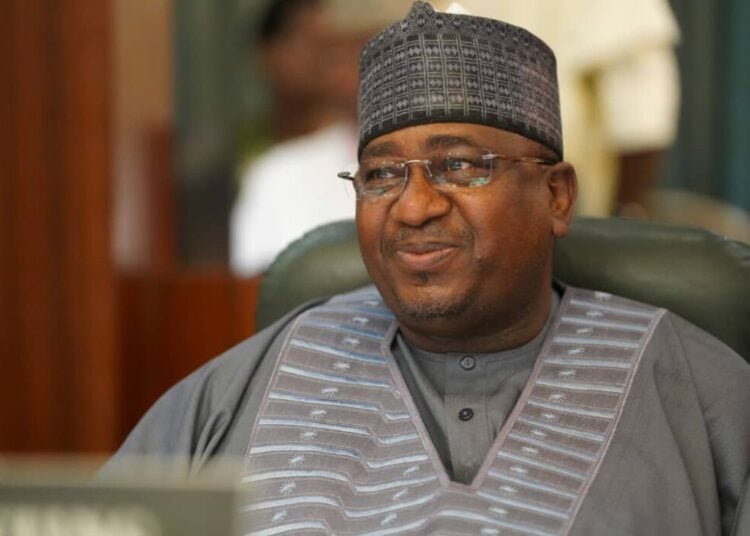In recent years, two of our comrades in the labour movement have emerged as governors. One of them, who carried the banner of the working class with conviction, is Dr Mohammed Nasir Idris. When he became the Governor of Kebbi State on May 29, 2023, he assumed office as a man deeply rooted in the ethics of labour service and the struggles of the ordinary worker.
Like Adams Aliu Oshiomhole, whose odyssey from the Nigeria Labour Congress (NLC) to the Edo Government House redefined governance, Governor Idris embodies the belief that governance must serve those whose voices are often unheard. As Oshiomhole once said, “Everything I am in life and everything I shall be is as a result of the industry and our collective struggle.”
It is that spirit of struggle that now underpins Governor Idris’ philosophy of governance. Having served as National President of the Nigeria Union of Teachers (NUT) and Deputy President of the NLC, he entered public office with a clear understanding of fairness, accountability and collective progress.
From the first day of his administration, Governor Idris made it clear that his mission was to serve with integrity and honesty. In the words of John F. Kennedy, “leadership and learning are indispensable to each other.” That union of learning and leadership became the core of his reform programmes in Kebbi State.
The classroom, the union struggles and the public office have become a continuous school for him, each stage deepening his sense of public responsibility.
About two and a half years into his first term, his record demonstrates a transformation built on discipline, inclusiveness and an understanding that development is a social contract. Across Kebbi State today, this social contract is evident in schools, roads, hospitals, farms, empowerment programmes and the growing trust between government and citizens.
Governor Idris has proven himself to be a leader capable of addressing the essential needs of the people of Kebbi State. He has redefined governance in the state through concrete results in education, infrastructure, agriculture, health, transportation, security, empowerment programmes and transparency, among others.
At the basic education level, thousands of children who were once excluded from schooling are now in classrooms. Tsangaya schools are being modernised, teachers are being recruited and facilities are being expanded. Governing boards for all the state tertiary institutions, including Kebbi State University of Science and Technology, Aliero (KSUSTA) and the State Polytechnic, Dakingari, were reconstituted for the first time. KSUSTA, which had been dormant for years, held its first convocation in a long time. Over 2,000 qualified teachers have been employed, their salaries have been improved, the retirement age has been extended from 60 to 65 and the years of service requirement have increased from 35 to 40. Over ₦10 billion has been allocated to building and renovating classrooms, expanding the school feeding programme and funding teacher training. Aristotle’s reflection that “the roots of education are bitter, but the fruit is sweet” comes alive in Kebbi State today, where deserted classrooms are now thriving again. For Governor Idris, education is not a privilege, but a public right and a tool for dismantling poverty and ignorance.
The city of Birnin Kebbi now bears a new face. The ₦10 billion Ultra-Modern Secretariat Complex at Gwadangaji is a symbol of administrative reform. The ₦5.6 billion dualisation of the Birnin Kebbi–Ambursa Road, extensive rehabilitation of city-centre roads valued at ₦12.9 billion and the ₦2.9 billion Ultra-Modern Motor Park have given the capital a modern and efficient identity.
Beyond the state capital, Governor Idris has extended the infrastructure renaissance to rural areas. The rural transformation drive has delivered over 300 kilometres of road networks, including the 6.5-kilometre Malisa–Kurya–Maruda Road in Gwandu Local Government Area, the 5.5-kilometre Rini Junction–Gidan Jodi–Garu Town Road in Augie and five kilometres of township roads in Argungu. Each kilometre represents improved access to trade, health and education. Amartya Sen’s assertion that “development is freedom” captures the essence of these efforts. In improving infrastructure, Governor Idris is expanding the freedoms of commerce, mobility and access, and liberating communities from isolation.
Governor Idris’ empathy for the people with low income in Kebbi State is expressed in his empowerment programmes. Through the “Kaura Cares” Livelihood Support Programme, 65,000 citizens each received ₦100,000, amounting to ₦6.5 billion in direct aid. Such direct interventions underscore the belief that governance must have a tangible impact on people’s lives.
The Ministry of Special Duties also extended ₦100,000 to over 3,200 persons with disabilities, providing them with tricycles and motorcycles to facilitate mobility and support small businesses. A ₦5 billion empowerment initiative was planned for an additional 50,000 beneficiaries. The initiative was conceived as a bridge from dependence to productivity, providing traders, artisans and women entrepreneurs with capital to build their lives.
The “Kaura Cares” Livelihood Support Programmes, far from political tokenism, are part of a deliberate policy of inclusion by Governor Idris in line with Nelson Mandela’s conviction that “education is the most powerful weapon which you can use to change the world,” for empowerment too is a form of education, the education of self-reliance.
In tackling unemployment, the state government launched youth and women-focused training programmes designed to equip thousands with vocational and digital skills. The Kebbi Youth Empowerment Programme now produces graduates who move directly into business ownership or employment, creating ripples of self-reliance across communities in the state.
Agriculture remains the economic backbone of Kebbi State, and under Governor Idris’ leadership, it is being re-energised. He understands that when the farmer prospers, the state prospers. Free fertiliser distribution, better seedlings and rural roads are boosting farm productivity. Under the Kebbi Agricultural Transformation Plan, the state has repositioned itself as one of Nigeria’s agricultural hubs. Gains in rice, sorghum, millet, maize, onions and groundnuts production reaffirm Kebbi’s role in national food security. Henry David Thoreau once said that “the price of anything is the amount of life you exchange for it.” Kebbi farmers, who exchange their labour for harvest, now reap the rewards of a government that values their effort.
In the health sector, the Idris administration has earned recognition for its quality delivery and human capacity improvement. The healthcare delivery system has advanced with the establishment of new and rehabilitated health centres across the state, bringing essential services closer to rural dwellers. Vaccination campaigns have expanded, maternal health initiatives have been strengthened and the gap between urban hospitals and rural clinics is being drastically narrowed. This commitment reflects Paul Farmer’s moral philosophy that “the idea that some lives matter less is the root of all that is wrong with the world.” In Kebbi State, access to healthcare is being treated as a measure of equality, not privilege. For a state with a vast rural population, the state government’s policies and programmes have significantly narrowed the gap between urban hospitals and village clinics. The state’s focus on health and human capacity earned Governor Idris an Award of Excellence, confirming his belief that public welfare is the true measure of leadership.
Security in Kebbi state has improved via practical measures. Vehicles and motorcycles have been distributed to established security agencies, including the police, the army and paramilitary personnel as well as vigilante groups to enhance surveillance and response capabilities. This has restored confidence in areas once troubled by threats, allowing farmers and traders to return to their fields and marketplaces. Peace is returning to distressed areas and the social fabric is being restored through collective vigilance and responsive leadership.
Governor Idris’ leadership also emphasises participatory governance. Through town-hall meetings and consultations, he ensures that the voices of citizens inform government decisions.
This reflects Max Weber’s timeless insight that “the government is not an entity separate from the people; it is composed of people who derive their power from the governed.”
With over 70 per cent of his campaign promises fulfilled, Kebbi has become one of Nigeria’s most progressive states. As Martin Luther King, Jr. says, “the function of education is to teach one to think intensively and to think critically. Intelligence plus character—that is the goal of true education.” Governor Idris’ odyssey from educator and unionist to governor exemplifies that fusion of intellect and character. He has built schools, hospitals, markets, roads, etc, but more importantly, he is rebuilding the idea of government as a service enterprise.
His labour background continues to shape his sense of responsibility. Years spent negotiating for teachers’ welfare taught him patience, empathy and the power of collective struggles. He sees leadership, as Simon Sinek aptly described it, “not about being in charge, but about taking care of those in your charge.”
The governor still stands today as a teacher, only that his classroom has expanded to the whole of Kebbi state, and his lesson plans are now written in policies/programmes and performance. His challenge is to continue to bridge the gap between promise and daily experience as well as between statistics and human stories.
In every sense, Kebbi State under Governor
Idris is writing a new chapter in people-centred governance. The teacher who once raised his voice for others now speaks through results. The unionist who once fought for fairness now dispenses it. The citizen who once marched for justice now governs with empathy.
And as Maya Angelou reminds us, “people may not remember what you said, people may not remember what you did, but people will always remember how you made them feel.” In Kebbi State today, the people feel the stirrings of a real, visible, humane and positive change across all sectors of the state economy.
~ Abdullahi M. Gulloma is an Abuja-based media, marketing, advertising and public relations practitioner and can be reached through [email protected]





